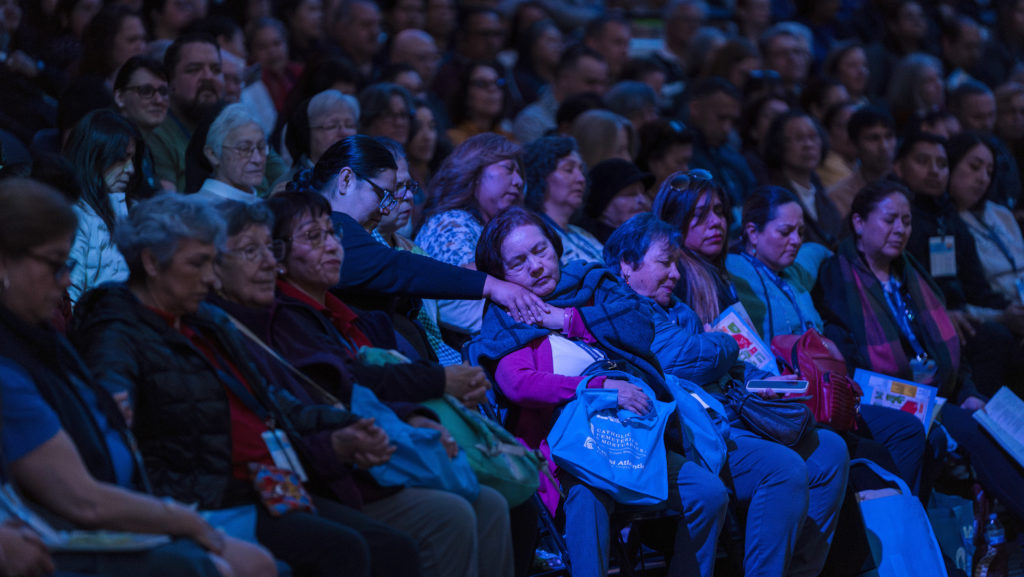Speakers at this year’s Los Angeles Religious Education Congress found ways to apply the event’s theme, “Called to Compassion,” to everything from interreligious dialogue to modern social justice concerns, to personal spirituality.
But the event’s most powerful call to compassion came from an uninvited guest: the wildfires that decimated entire LA County communities last month.
The adult days of the congress, held Feb. 21-23, began with the moving testimony of two survivors of the Palisades Fire: Msgr. Liam Kidney, pastor of Corpus Christi Church in Pacific Palisades, and the parish’s secretary, Lorraine Hartman.
“It struck me that here we had our tabernacle containing the body of Christ, and we’re called Corpus Christi, which means ‘the body of Christ,’ ” said Kidney, recalling his first reaction to the news that Corpus Christi’s tabernacle had been recovered from the destroyed church by firefighters.
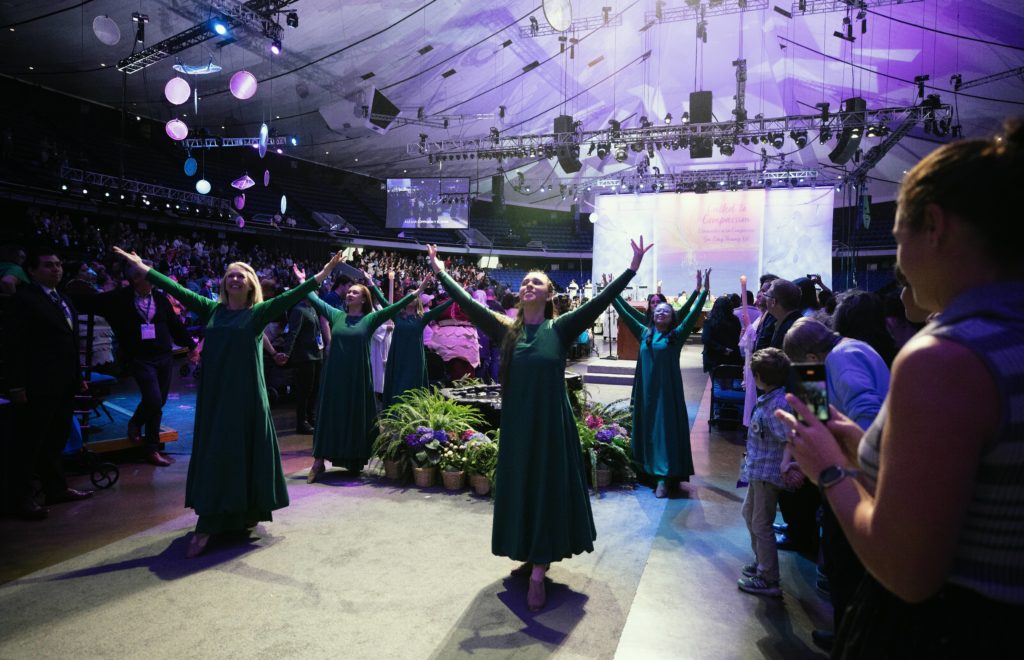
By the end of the weekend, longtime congress-goer and Corpus Christi parishioner Fran Zonfrillo told Angelus her congress experience had given her hope after losing her home to the Palisades Fire in January.
“It was wonderful: great music, great Scripture, great conversations,” said Zonfrillo, who was married at Corpus Christi in the 1970s and has now become one of the parish’s “roaming Catholics,” attending Sunday Mass with Kidney at a different LA parish every weekend.
Except, however, that Sunday, Feb. 23, when Corpus Christi’s weekly “parish” assignment was the congress’ closing Mass with Archbishop Gomez.
“It gives you a little different lens,” said Zonfrillo of the experience. “Maybe a little more sacred, a little more hospitable. I feel inspired to do more.”
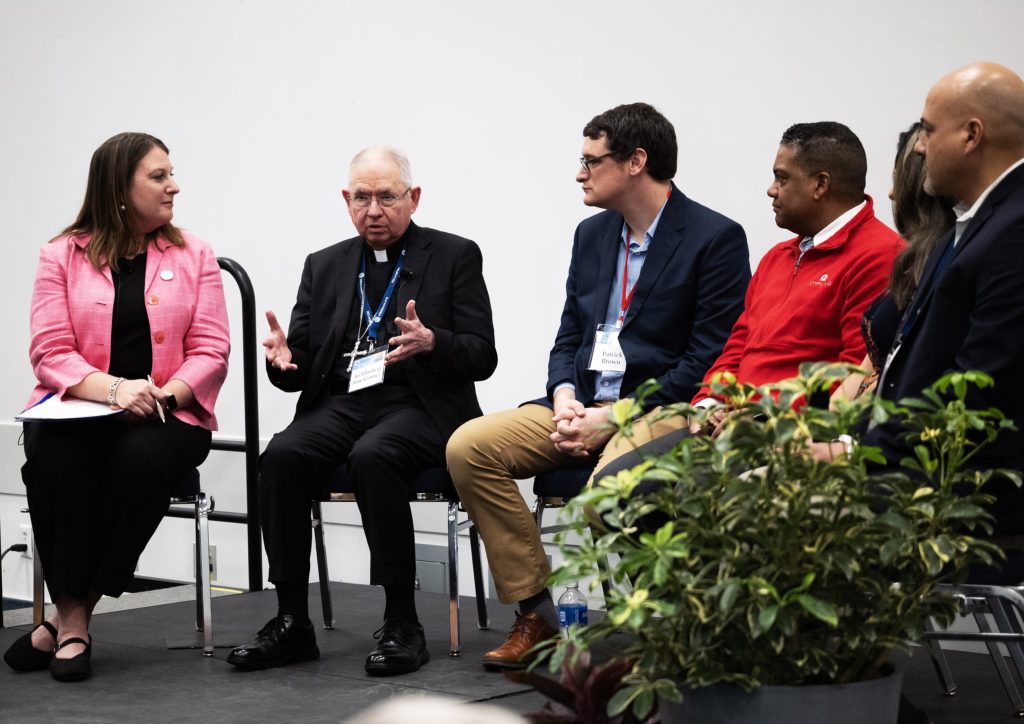
More than 12,000 people attended the congress, in addition to the 7,500 young people who came for Youth Day on Thursday, Feb. 20. At workshops and talks throughout the congress, several speakers seemed to ponder the same question: What does it take to have compassion?
For congress mainstay and Angelus contributor Father Ronald Rolheiser, the answer begins with acknowledging that compassion is not “hardwired” in our human DNA.
“It’s impossible for us to practice compassion the way Jesus does,” said Rolheiser in a Friday afternoon workshop. “It’s impossible for human beings. It’s not impossible for God.”
The “litmus test” for whether a Catholic truly shows compassion, Rolheiser said, is whether they can love their enemy.
“Can I do good to someone who hurts me?” asked Rolheiser. “Can I really understand that Jesus is the only way I can do it? It goes against all our instincts, so we’re going to need some help.”
At a Friday panel titled “Is it only Catholics who are Called to Compassion?” moderated by Father Alexei Smith, the archdiocese’s Ecumenical and Interreligious Officer, speakers agreed with the DNA metaphor.
“One of the great insights of religion, and certainly Judaism, Christianity, and Islam, is to overcome our DNA,” said panelist Rabbi Michael Lotker, rabbi emeritus at Temple Ner Ami in Camarillo. “We are wired in our DNA to basically see ourselves as a member of one tribe, and people that look differently, speak differently, act differently, they are fair game. Go steal their stuff.”
But the Hebrew Bible familiar to Jews, Christians, and Muslims “forces us to say we are all in the same tribe,” Lotker said.
“We are all created in God's image, and we are all bound by ‘rahamim’ (a Hebrew word that roughly translates to compassion) because ultimately, we come from the same divine womb.”

In her Saturday morning keynote talk, Vatican official Sister Marie-Kolbe Zamora used the metaphor of human breathing to explain the need to “inhale” Jesus’ compassion by accepting his mercy toward us as sinners, in order to “exhale” it with the help of baptismal grace, rather than our human efforts.
Zamora, a Texas native and Franciscan Sister of Christian Charity who works in the Vatican’s General Secretariat of the Synod of Bishops, based her talk on the passage from the Gospel of Mark where Jesus invites a young man to sell all his possessions before following him.
“We are so fixated on hanging on to ourselves, to our securities, for dear eternal life, that we reduce the possibility of our salvation really touching us to a ‘mission impossible,’ ” said Zamora, invoking the popular Tom Cruise action movie series in her talk. “But Jesus says, ‘for God, all things are possible.’ ”
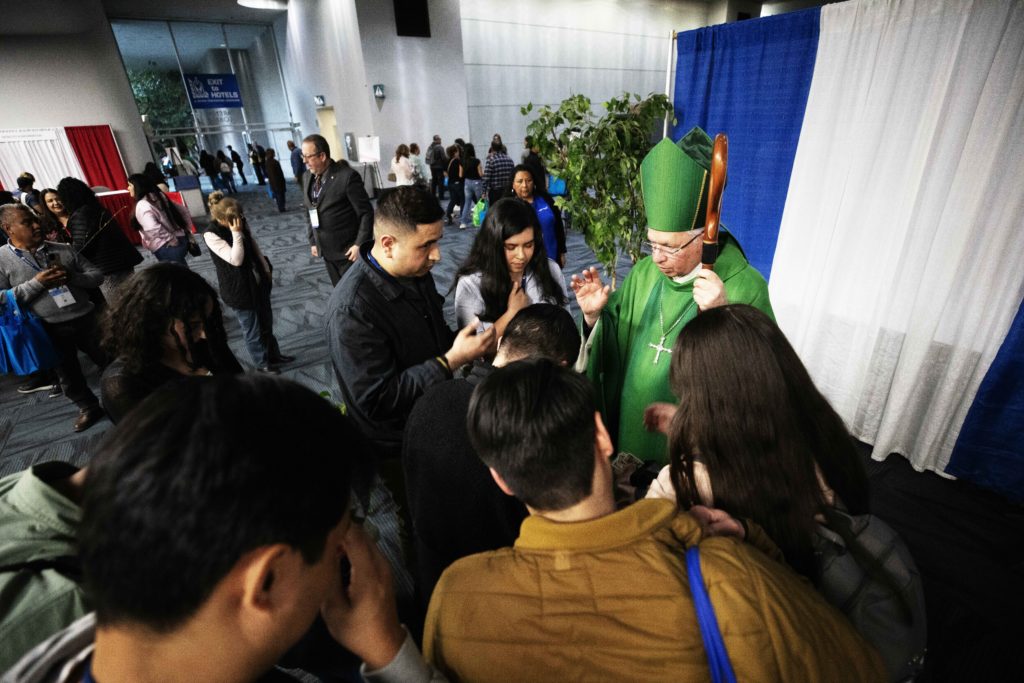
Several congress sessions addressed perhaps the most serious social concern for Catholics today: family life.
At Saturday morning’s “Front Row with Archbishop Gomez” event, a lineup of experts discussed the challenges of promoting a “marriage culture” in California, where high costs of living, government policies, and the effects of secularization have led to a “freefall” in marriage rates.
“Marriage is a fundamental issue because it affects everyone,” said panel moderator Kathleen Domingo, executive director of the California Catholic Conference, the public policy arm of the state’s bishops. “It’s the foundation of our society and our parish life.”
Domingo explained how three years ago, the state’s bishops decided to launch the “Radiate Love” pro-marriage initiative after realizing California’s marriage trends were “untenable” for the future. The goal: to “catalyze a renewal in marriage culture at the parish level.”
Catholic speaker and marriage expert Damon Owens said that promoting such a culture starts with each Catholic “knowing your lane” regardless of their vocation, and married couples finding sources of support — whether through personal friendships or even going on annual weekend retreats, as clergy do.
“Marriage isn’t private, it’s personal,” said Owens. “Every one of us has a stake in the health of marriage, and we’ve got to know the lane so that we can help marriage to flourish rightly.”
Erika Farkas, a mother of five from St. Clare of Assisi Church in Santa Clarita, said she appreciated the diversity of the talks at this year’s congress, but found Julia Sadusky’s Saturday workshop on “Talking with Your Teen About Sex” especially helpful as her oldest child approaches adolescence.
“Now, with everything that’s in the media, it feels like you really need to be on it before, so that they can come to you first, rather than the world,” said Farkas.
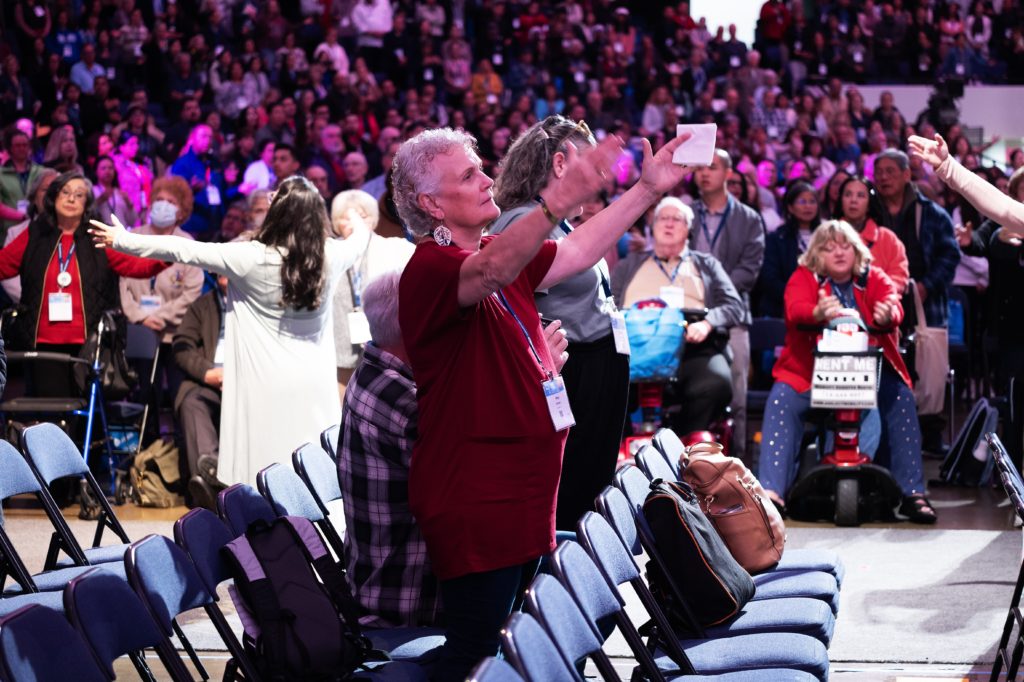
At the congress’ closing Mass on Sunday, Archbishop Gomez told the catechists, teachers, and ministry leaders in attendance that “our mission is to raise a new generation of saints and heroes for the faith” like Blessed Carlo Acutis, an Italian youth who died in 2006 at the age of 15 and whose relic was venerated during the congress’ Youth Day.
“The saints tell us that the God we serve is a consuming fire. Our God wants all our love and wants every part of us: all our heart and soul, all our mind and strength,” said the archbishop. “That means we can never proclaim a faith that is just comfortable, a faith that doesn’t challenge ourselves and challenge the people around us.”
